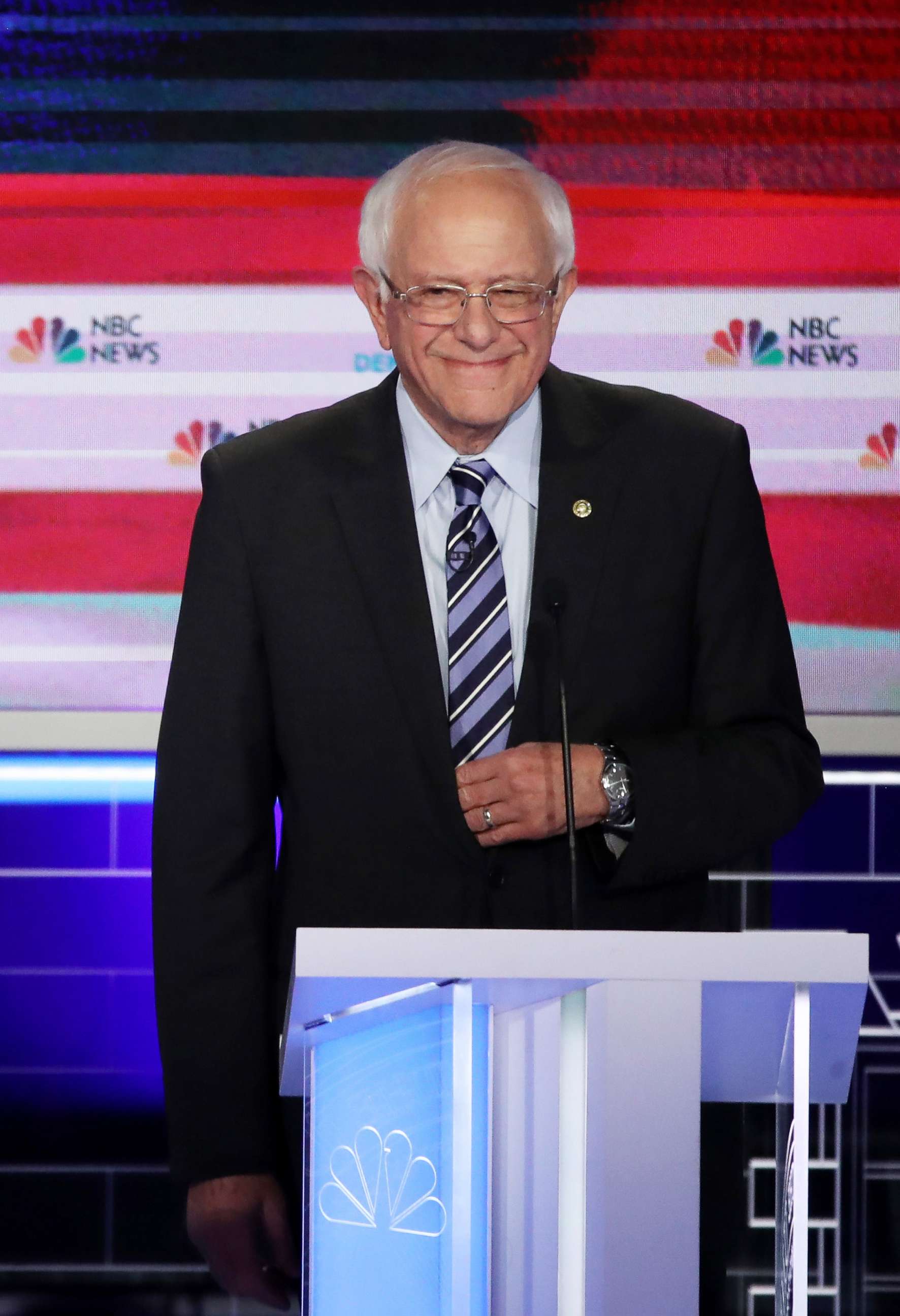'Every American is entitled to health care': Sen. Bernie Sanders
The United States must "end the international embarrassment" of not guaranteeing health care as a right, Sen. Bernie Sanders, I-Vt., said on ABC's "This Week" Sunday.
"We need more changes in our health care system, you talk about a public option, many people will not be able to afford a public option," Sanders said. "What the American people have got to decide is one simple question: 'Do we create a health care system, guaranteeing health care for all people without insurance companies and drug companies making huge profits and distorting health care in America?' That is the issue."
Sanders spoke with ABC News Chief Anchor George Stephanopoulos on Sunday, days after the first Democratic presidential debates, where many of his progressive policies were front and center.
His proposal for Medicare for all would dismantle President Barack Obama's Affordable Care Act, eliminate private insurance and create a single-payer program, in which all Americans would participate in a single, government-run plan that does not include deductibles and out-of-out pocket costs. Critics say Sanders' plan would dramatically increase taxes.
Sanders touted Medicare’s current popularity as a reason to push for Medicare for all and the elimination of private insurance.
"By the way, Medicare today is the most popular health insurance program in the country, private health insurance is not particularly popular," Sanders said. "The United States must end the international embarrassment of being the only major country on Earth not to guarantee health care for all people as a right."

Following his push for the policy in 2016, the policy has become a progressive litmus test for candidates this election cycle.
During the debate on Thursday, the 10 candidates were asked to raise their hands if they would eliminate private insurance to implement Medicare for all. Sen. Kamala Harris, D-Calif., was one of two candidates to raise her hand in favor of eliminating private insurance. The following morning she walked back her support of eliminating private insurance on MSNBC, saying that she had misunderstood the question and she would not eliminate private insurance in favor of Medicare for all, but does support Sanders' proposal for a single-payer government-run insurance plan.
Sanders' responded to Harris' backtracking Friday in a statement, writing that he "demanded that all candidates be clear about their stance on Medicare for all."
"If you support Medicare for all, you have to be willing to end the greed of the health insurance and pharmaceutical industries. That means boldly transforming our dysfunctional system by ending the use of private health insurance" Sanders wrote. "It is imperative that we remain steadfast in our commitment to guarantee health care as a human right and no longer private corporations to make billions of dollars in profits off Americans' health care."
Referencing a Wall Street Journal editorial claiming that he has "set the Democratic agenda," the senator touted both nights of the debate as a victory during a campaign stop in Hudson, New Hampshire.
"So how did we win a debate that we weren't even participating in? Because of New Hampshire and 21 other states that supported our agenda, other Democratic candidates now understand that they have got to talk to the needs of the working class of this country," he said. "So we came here to New Hampshire and everybody said our ideas are crazy and wild and extreme and now it turns out, all of the other candidates are saying what we said four years ago."
Responding to one of the more contentious moments of the two-night debate, Sanders was also asked on "This Week" what his current thoughts were on school busing, after Harris grilled former Vice President Joe Biden on his opposition to school busing to desegregate schools back in the 1970s.
Sanders said it is better to focus on fair housing legislation because busing is not the "optimal" option to desegregate schools.
"Busing is certainly an option that is necessary in certain cases, but it is not the optimal," Sanders said. "Does anybody think it's a good idea to put a kid on a bus, travel an hour to another school, into another neighborhood that he or she doesn’t know, that's not the optimal. What is the optimal is to have great community schools which are integrated."
Following President Donald Trump’s historic visit to the North Korean demilitarized zone on Sunday, Sanders said on "This Week" that he "has no problem with him sitting down with Kim Jong Un in North Korea or any place else," but that he doesn’t want it "simply to be a photo opportunity."
Sanders said he thinks "sitting down with our adversaries is not a bad idea."
But he would like to see the president do the same with Middle Eastern countries.
"I wish he would sit down with a dictatorship in Saudi Arabia, bringing Iran into this country, and tell those people that we are sick and tired of spending trillions of dollars because they keep going to war against each other," Sanders said.





